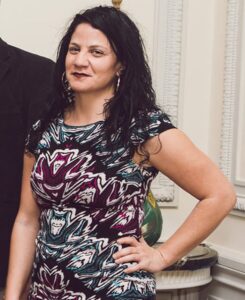
Rachel Dolezal became an unfortunate household name back in 2015, when the former president of the NAACP chapter in Spokane, WA was outed by her own parents for pretending to be Black. The shockwave of confusion her identity crisis sent throughout many Black households seemed to be an unparalleled feeling. Now five years later, Black Americans are feeling that same confusion once more.
Twitter’s trending page is filled with random names at any given point in a day. In most cases, I’m unfamiliar with who is being gossiped about by millions of people around the world. Which is why when I clicked on the name Jessica Krug last Friday, it was to my dismay that I found out why she was a hot topic.
In a singular post on Medium, Krug exposed her lifelong lie as she has claimed many Black identities, but most recently, an Afro-Latina from the Bronx. The five-minute read left me with more questions than answers as she confesses to her deceit that she claims is rooted in trauma and identity issues.
The associate professor of “politics, ideas, and cultural practices in Africa and the African Diaspora,” at George Washington University says that mental health issues are to blame for her fascination with false identities. But I say she should take personal responsibility for her lies.
“But mental health issues can never, will never, neither explain norjustify, neither condone nor excuse, that, in spite of knowing and regularly critiquing any and every non-Black person who appropriates from Black people, my false identity was crafted entirely from the fabric of Black lives,” Krug said.
As Krug continued to chastise herself in her post, I couldn’t help but think of all the Black people in her circles and community that uplifted and supported her as she falsely identified with a demographic that faces oppression and suffering, constantly.
Historically, Black spaces are often violated and ravaged. Whether it’s our holy places being bombed, our neighborhoods being gentrified or our nations being colonized, Black people have continually dealt with our sense of community being shaken to its core.
Although Krug may not have physically demolished buildings or stolen property from Black people, what she took was far more valuable: our identity.
Black people have been turned away from all types of spaces. Job opportunities. Universities. Lunch counters. All in the name of preserving white-ness. Our forgiving and resilient spirits have allowed us to become a hospitable group of people, when we are privileged to have spaces of our own.
Black women in particular have been harmed by Krug’s lies, as this demographic is already vulnerable to being underrepresented in professional spaces. As Black people try to make sense of the entire situation, the question of needing gatekeepers in the Black community resurfaces.
Hari Ziyad, Editor-in-Chief of RaceBaitr, knew Krug personally. Ziyad took to Twitter to publicly apologize to those who tried to warn him about Krug in the past.
“For years I defended her work, and her from her own self-loathing,” Ziyad said. “I did it despite warnings from Black friends, from those who said she wasn’t Black enough even if they could accept that she was Black, and from my own mind and body.”
Ziyad noted that all of Krug’s work on RaceBaitr was pulled down immediately after he received a call from Krug, confirming everything in her Medium post to be true.
“I apologize to all who gate-keep Blackness,” Ziyad said. “I’ve always said gate-keeping is okay and valid. I was wrong. Gate-keeping is good and necessary.”
Some may say Krug took our kindness for weakness. I think Krug played her cards right in a game that’s quick to accept Black-ness that isn’t too Black. Her Eurocentric features packaged with her fairytale Bronx upbringing was enough to raise eyebrows but not red flags.
My sentiments are those of Ziyad’s — gatekeeping in the Black community is good and valuable.